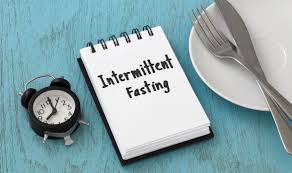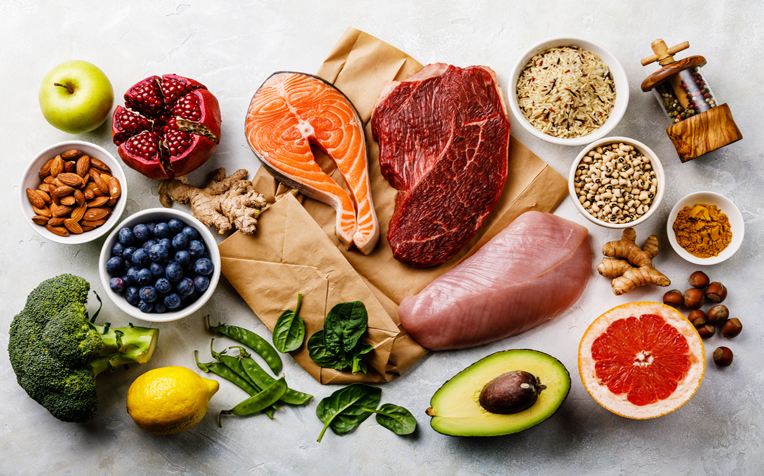This blog is part of the All About Fad Diets blog series. They’re not really fads, but more like lifestyles.
Going without foods for periods of time is engrained in our DNA. It is argued that fasting is more natural to humans than eating three meals a day.
There is no hard and fast rule. There are a few different ways to do intermittent fasting. The two most popular versions are eating during an 8 hour window (11am-7pm or 12pm-8pm) and fasting for 16 hours, or only eating 500-600 calories a day for two days a week (5:2).
Ease yourself into a more restricted eating window by firstly starting with 12:12 then 14:10, before moving to 16:8. If you are doing 5:2, it is normal to eat slightly more on your days off fasting, however, most people do not cancel out their hard work of their fasting days.
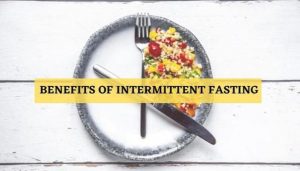
Pros
Weight Loss/Management
As long as you’re not binging during your eating window or on your days off!
Insulin Sensitivity
May improve insulin sensitivity (opposite of insulin resistance). Research has shown a blood sugar reduction of 3-6% and a fasting insulin reduction of 20-31%. This is likely due to less blood sugar and insulin spikes, because when you’re intermittent fasting you eat less frequently.
Human Growth Hormone
Increases human growth hormone as much as five-fold. This hormone is known to body builders. It helps to build, maintain and repair muscles. This increases metabolism and burns fat.
Lengthens the amount of time our liver can detoxify (overnight) without interruption. Fasting enhances liver detoxification by allowing the liver to concentrate on eliminating stored toxins, rather than continuously processing new toxins entering the body all day (because let’s face it, most people snack all day!).
Check out my Liver Detox Tonic.
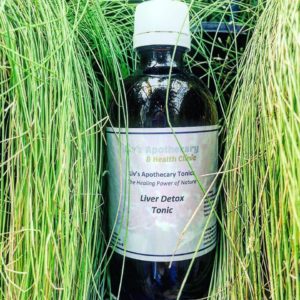
Life Expectancy
Intermittent fasting (especially in conjunction with calorie restriction i.e. not binging when you are allowed to eat!) is known to prolong life expectancy.
Flexibility
If you goal is weight loss, once you achieve your goal you can take your foot off the accelerator. You may choose to just do intermittent fasting for a few days a week (if you are doing 16:8) or one day a week (5:2 could become 6:1).
Encourages Awareness
If you are doing 5:2 you will have to check the calories of all the foods you eat on your fasting days. Therefore, you are not likely to eat high calorie foods otherwise you won’t be able to eat anything else that day!

Cons
“You’re Not You When You’re Hungry!”
It’s easy to overeat when you are hungry or hangry. Be mindful when you do eat that you eat healthily, and not anything and everything in sight because you are so ravenous! Notice if you are eating the same amount or less. Hopefully not more! It is important to still get enough vegetables, protein, fats and fibre.
Junk Food Isn’t Excluded
Time/calorie restriction doesn’t discriminate between healthy and unhealthy foods.
Low Calorie = Healthy?
Not always. Low-fat foods are lower in calories, but they’re not always healthier. Let’s take yoghurt as an example. Low-fat yoghurt is often sweetened with fruit and sugar. Whereas, the fat content in full-fat yoghurt (without sugar) will keep you fuller for longer. But if you’re on a low calorie diet, you will of course choose the one that is lower in calories.

Liv’s Recommendations
I don’t blame you if you don’t want to do the full-blown 16 hour fast or 500 calories a day. I’m with you. I know that if I ate this way, I would not have the energy, clarity and mental focus to get through my days at 100%. I always want to be feeling 100% to do all of the things I want to do. I value energy, clarity and mental focus over the other benefits of intermittent fasting. However, I understand how it would be a helpful way for people to restrict their calorie intake for weight loss.
Most people already do intermittent fasting without realising, while they sleep. Being realistic for most lifestyles, aim for at least 12 hours between dinner and breakfast. If you eat dinner 30 minutes earlier and breakfast 30 minutes later, your liver has an extra one hour of uninterrupted detoxification. If you eat dinner one hour earlier and breakfast one hour later, your liver gets to detox an extra two hours interrupted, and so on.
If you have an underlying health condition, check with your healthcare professional before fasting.
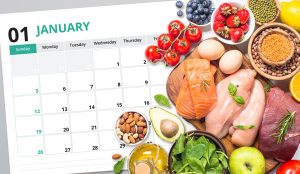
To Wrap It Up
With a keto, Paleo, primal, Mediterranean, vegan, vegetarian, gluten-free, dairy-free wrap of course (or not if you’re intermittent fasting!).
The purpose of this series of blogs isn’t to choose a diet to follow. It’s to inform you of the pros, cons and my recommendations, if you do choose to (or already) follow one of these diet trends.
I personally pick and choose what I like, and more importantly what suits my body, from each diet to create my own personalised diet. My motto is “Realigning Nutrition with Intuition”. Try N=1 Self Experimentation.
Intuition is now totally disassociated from Nutrition. We don’t eat what or when we feel like eating. We eat what and when we are told we should be eating. Realigning Nutrition with Intuition means being in-tune with your body and rediscovering what diet/lifestyle is most suited to you. As I trained as a Naturopath and Holistic Nutritionist, I am not about strict plans. That is for you to decide for yourself.
There is no one-size-fits-all baseball cap when it comes to diets.
Your Nutrition Mentor,


